- Home
- About ANT
-
Products
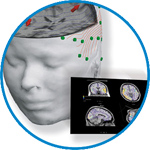
asa
asa is a highly flexible EEG/ERP and MEG analysis package with a variety of source reconstruction, signal analysis and MRI processing features.
.jpg)
eego mylab
The new frontier in multimodal brain research. With up to 16 kHz sampling rate, 256 EEG channels and unique software features, eego mylab gives you an unprecedented in-depth understanding of the human brain.
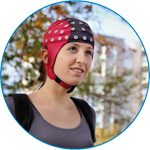
eego sports
eego sports offers complete freedom to collect high-density EEG data, bipolar EMG signals, and a variety of physiological sensor data, wherever and whenever required, with publish quality data in less than 15 minutes!
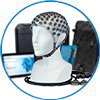
waveguard net
The waveguard net sets a new standard for research applications requiring high-density EEG data acquisition with quick preparation time, high flexibility, and subject comfort.
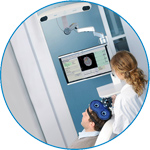
visor2
Our new and upgraded visor2 solutions integrate all the latest technologies for navigated rTMS, dual-coil navigation support, EEG-TMS recordings and pre-surgical evaluation for the highest quality in research and clinical procedures.

powerMAG ANT
The PowerMAG ANT 100 rTMS stimulator is designed for the specific needs of high-end TMS applications. Powerful high-frequency TMS as well as high precise single pulse and repetitive pulse protocols are combined in one single device.
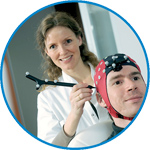
xensor
xensor offers the solution for digitization of 3D electrode positions. xensor takes care of the whole procedure; it records, visualizes and stores positions acquired with a dedicated digitizer.
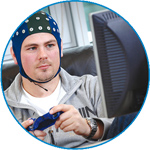
waveguard original
waveguard original is the cap solution for EEG measurements compatible with fMRI, MEG and TMS system. Use of active shielding guarantees performance in even the most demanding environments.

waveguard connect
waveguard connect EEG caps are a perfect match for hospitals and institutes aiming at reliable EEG, maximum uptime and great patient comfort! For optimal signal quality, the electrodes are made of pure, solid tin.
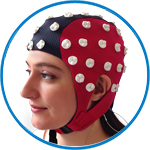
waveguard touch
waveguard touch is a dry electrode EEG cap. The unique Ag/AgCl coated soft polymer electrodes provide stable, research-grade EEG signals while maintaining subject comfort. The combination of these innovative dry electrodes and the industry-leading waveguard cap makes waveguard touch the best solution for dry EEG.
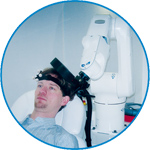
smartmove
smartmove allows planning of a complete TMS session ahead by defining stimulation sites based on anatomical MRI information and functional information like fMRI, PET or EEG/MEG.
Stay - References
- Support
- Events
- News
- Contact Us
You are here
Methodology for Knowledge Elicitation in Visual Abductive Reasoning Tasks
Methodology for Knowledge Elicitation in Visual Abductive Reasoning Tasks
The potential for bias to affect the results of knowledge elicitation studies is well recognized. Researchers and knowledge engineers attempt to control for bias through careful selection of elicitation and analysis methods. Recently, the development of a wide range of physiological sensors, coupled with fast, portable and inexpensive computing platforms, has added an additional dimension of objective measurement that can reduce bias effects. In the case of an abductive reasoning task, bias can be introduced through design of the stimuli, cues from researchers, or omissions by the experts. We describe a knowledge elicitation methodology robust to various sources of bias, incorporating objective and cross-referenced measurements. The methodology was applied in a study of engineers who use multivariate time series data to diagnose the performance of devices throughout the production lifecycle. For visual reasoning tasks, eye tracking is particularly effective at controlling for biases of omission by providing a record of the subject’s attention allocation.
Read the full paper here.

 Read more
Read more.jpg)




